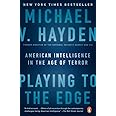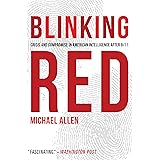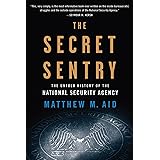
Enjoy fast, free delivery, exclusive deals, and award-winning movies & TV shows with Prime
Try Prime
and start saving today with fast, free delivery
Amazon Prime includes:
Fast, FREE Delivery is available to Prime members. To join, select "Try Amazon Prime and start saving today with Fast, FREE Delivery" below the Add to Cart button.
Amazon Prime members enjoy:- Cardmembers earn 5% Back at Amazon.com with a Prime Credit Card.
- Unlimited Free Two-Day Delivery
- Streaming of thousands of movies and TV shows with limited ads on Prime Video.
- A Kindle book to borrow for free each month - with no due dates
- Listen to over 2 million songs and hundreds of playlists
- Unlimited photo storage with anywhere access
Important: Your credit card will NOT be charged when you start your free trial or if you cancel during the trial period. If you're happy with Amazon Prime, do nothing. At the end of the free trial, your membership will automatically upgrade to a monthly membership.
Buy new:
-16% $15.88$15.88
Ships from: Amazon Sold by: RoseBookz
Save with Used - Good
$8.24$8.24
Ships from: Amazon Sold by: RNA TRADE LLC

Download the free Kindle app and start reading Kindle books instantly on your smartphone, tablet, or computer - no Kindle device required.
Read instantly on your browser with Kindle for Web.
Using your mobile phone camera - scan the code below and download the Kindle app.

OK
 Audible sample Sample
Audible sample Sample 


Playing to the Edge: American Intelligence in the Age of Terror Paperback – February 21, 2017

Explore your book, then jump right back to where you left off with Page Flip.
View high quality images that let you zoom in to take a closer look.
Enjoy features only possible in digital – start reading right away, carry your library with you, adjust the font, create shareable notes and highlights, and more.
Discover additional details about the events, people, and places in your book, with Wikipedia integration.
Purchase options and add-ons
For General Michael Hayden, playing to the edge means playing so close to the line that you get chalk dust on your cleats. Otherwise, by playing back, you may protect yourself, but you will be less successful in protecting America. "Play to the edge" was Hayden's guiding principle when he ran the National Security Agency, and it remained so when he ran CIA. In his view, many shortsighted and uninformed people are quick to criticize, and this book will give them much to chew on but little easy comfort; it is an unapologetic insider's look told from the perspective of the people who faced awesome responsibilities head on, in the moment.
How did American intelligence respond to terrorism, a major war and the most sweeping technological revolution in the last 500 years? What was NSA before 9/11 and how did it change in its aftermath? Why did NSA begin the controversial terrorist surveillance program that included the acquisition of domestic phone records? What else was set in motion during this period that formed the backdrop for the infamous Snowden revelations in 2013?
As Director of CIA in the last three years of the Bush administration, Hayden had to deal with the rendition, detention and interrogation program as bequeathed to him by his predecessors. He also had to ramp up the agency to support its role in the targeted killing program that began to dramatically increase in July 2008. This was a time of great crisis at CIA, and some agency veterans have credited Hayden with actually saving the agency. He himself won't go that far, but he freely acknowledges that CIA helped turn the American security establishment into the most effective killing machine in the history of armed conflict.
For 10 years, then, General Michael Hayden was a participant in some of the most telling events in the annals of American national security. General Hayden's goals are in writing this book are simple and unwavering: No apologies. No excuses. Just what happened. And why. As he writes, "There is a story here that deserves to be told, without varnish and without spin. My view is my view, and others will certainly have different perspectives, but this view deserves to be told to create as complete a history as possible of these turbulent times. I bear no grudges, or at least not many, but I do want this to be a straightforward and readable history for that slice of the American population who depend on and appreciate intelligence, but who do not have the time to master its many obscure characteristics."
- Print length464 pages
- LanguageEnglish
- PublisherPenguin Books
- Publication dateFebruary 21, 2017
- Dimensions8.35 x 5.43 x 1.09 inches
- ISBN-100143109987
- ISBN-13978-0143109983
Frequently bought together

Similar items that may deliver to you quickly
Editorial Reviews
About the Author
Product details
- Publisher : Penguin Books; Reprint edition (February 21, 2017)
- Language : English
- Paperback : 464 pages
- ISBN-10 : 0143109987
- ISBN-13 : 978-0143109983
- Item Weight : 13 ounces
- Dimensions : 8.35 x 5.43 x 1.09 inches
- Best Sellers Rank: #720,742 in Books (See Top 100 in Books)
- #896 in Political Intelligence
- #3,155 in Traveler & Explorer Biographies
- #3,509 in Political Leader Biographies
- Customer Reviews:
About the author

Discover more of the author’s books, see similar authors, read author blogs and more
Customer reviews
Customer Reviews, including Product Star Ratings help customers to learn more about the product and decide whether it is the right product for them.
To calculate the overall star rating and percentage breakdown by star, we don’t use a simple average. Instead, our system considers things like how recent a review is and if the reviewer bought the item on Amazon. It also analyzed reviews to verify trustworthiness.
Learn more how customers reviews work on Amazon-
Top reviews
Top reviews from the United States
There was a problem filtering reviews right now. Please try again later.
As somebody with an IT background maybe it is of particular interest to me to peek behind the curtain at NSA. It's long been the stuff of rumor and fanciful speculation. A strong urban mythology persists and probably will endure but in this book many popular (i.e. Hollywood) assumptions about what goes on at NSA or CIA are fairly well obliterated. Some things turn out to be true but some things are just nonsense. A few things commonly believed simply turn out to be beyond the laws of physics, let alone Federal law. In a sense this book liberally applies some strong tinfoil-hat remover. Some people will actually be disappointed that they don't actually do some of that stuff. Additionally there is a theme throughout the book regarding obeisance to constitutional protections that is (surprising to many, I'm sure) actually seems pervasive in the corporate culture at both NSA and CIA. Some will choose not to believe that. But there it sits. Read their stories and see if you still think what you think. I would advise only to be open to the idea that what is written by outsiders (even Intel beat journalists) on intelligence issues is often just wrong. Sometimes in small ways but sometimes in very big ways.
The book is about the last couple of decades in the intelligence community. These years have turned out to be among the more intense and controversial times in our history and both agencies were right in the thick of it. Big Things happened. The Soviet Union fell and Europe reshaped. Newly energized, savage enemies shocked our senses. Sweeping events pushed any preexisting ideas about this new century into a different place than may have been guessed. There have been catastrophic losses, failures and missed opportunities. There are monumental risks that persist in the world and some of the well-intended but tragically mistaken steps that have been taken and are being taken will have costs we cannot yet measure. There have also been tremendous successes and inspiring, even heroic actions, many of which can't be reported. Not even in this book. But some of them are.
One of the interesting things is the personal perspective. We regular people must settle for merely reading and watching the news to find out what's going on. We follow all these names of the people shaping the world: government leaders, public figures of one sort or another, terrorists, freedom fighters (“Rogues, Buffoons and Statesmen” as another book calls them)... all the who's-who in the world. General Hayden due to the career path he's had is one of those uncommon people who hasn't just seen them on TV. He's met them. He's talked with them, argued with them and otherwise gotten to personally know all of these people that are central to history as it is being made. He developed friendships with some, hostility with others and insight (at least) in all. More than anything, it's a history book written by somebody who was there.
General Hayden doesn't firmly stake out any particular partisan political stance. He claims to have mostly (small-l) libertarian personal views but tries to stay apolitical. He was of course first posted to head NSA in the Clinton administration and stayed through the Bush administration into (for a few weeks anyway) the Obama administration. After all-- partisan administrations come and go but career intelligence professionals have to serve both with the same focus. I enjoyed this insight into the work of some remarkable people that we usually never get to know much about.
As a dedicated public servant I give Hayden five stars; however, some of the policies he supported under Bush II I'd give one star to, especially Hayden's view of the Iranian nuclear controversy, so I come up with a four-star overall rating. In his estimation, Iran "remains the duplicitous, autocratic, terrorist-backing, Hezbollah-supporting, Hamas-funding, region-destabilizing, hegemony-seeking theocracy," not exactly words of praise. Here is not the spot to debate these wide-ranging allegations (below I'll just stick to the nuclear issue), but just to mention Hezbollah: This organization didn't exist prior to the 1982 Israeli invasion of Lebanon that went all the way to Beirut. The Shia of southern Lebanon greeted the IDF as liberators from the Sunni-dominated central government that - going back hundreds of years under the Ottomans - had severely repressed the Shia. After a few years of Israeli occupation of southern Lebanon the question arose with the indigenous inhabitants "When are you planning on leaving?" When it became obvious the answer was "never" Hezbollah was formed that ran a low-intensity insurgency against the IDF, finally forcing its departure 18 years later. (In more recent times, Hezbollah has successfully fought against ISIS, Al Nusra et al attempts to infiltrate Lebanon.) Hezbollah shattered Israel's long-held dream of extending its borders to the Litani River in Lebanon (a goal discussed by the WZO as far back as the post WWI Versailles peace conference) so its now gratuitously described as a "terrorist organization," a characterization seconded by Hayden.
U.S. involvement in the Iranian nuclear situation is now in its 13th year, a complex story fraught with numerous unsupported stories of Iranian malfeasance - the "laptop of death," exploding bridgewire research, "secret" facilities, the mysterious large chamber at Parchin used to test nuclear triggers, and a host of other undocumented plants by the Mossad and Mujahedin-e Khalq (MEK) that received wide-spread (and unquestioned) media coverage here because of their sensational nature. Unnoted by Hayden, the U.S. during the Bush administration never negotiated with Iran, merely dictated total surrender of its nuclear program, the "no enrichment" policy Hayden falls into line with because "the starting point for all this was a series of UN Security Council resolutions that directed Tehran to suspend all enrichment activities," a position Iran was never willing to accept as by international law it was entitled to proceed with its centrifuge program as long as it complied with IAEA rules - which it did. The UN resolutions are worth reading - their sole source of censure is based on speculation Iran might be doing something the UN is unaware of, something that could be said of any country. The UN never accused Iran of any NPT violations, yet hit the country with Article VII sanctions that apply to countries that pose an "imminent threat to global security." Yet some nations that actually have nuclear weapons that are not party to the NPT (Israel, Pakistan, India) have not been subject to UN sanctions. Most curious. Hayden describes his (and other agencies) job as finding out what Iran was really up to with their nuclear program, implying little was known about Iranian efforts. I found this air of mystery unfounded as the IAEA knew, since 2003, exactly what Iran was up to with its nuclear cycle though endless inspections of all facilities accompanied by quarterly reports - the IAEA knew down to a tenth of a kilogram how much LEU Iran possessed, how much it was capable of producing, and "cheating" was impossible (for reasons we will not belabor here). As Hayden devotes some space to, the 2007 National Intelligence Estimate (NIE) prepared by all 16 U.S. intelligence agencies determined that in 2003 Iran ceased its lab-scale work that might have been pursuing a nuclear weapon - a finding that greatly disappointed Bush and the neocons advocating a more kinetic solution to Iran's nuclear program. Not noted by Hayden - or seemingly anyone else - was why Iran chose that year to cease this program? That was the year the United States invaded Iraq, eliminating Saddam as a threat to Iran. Written out of the endless coverage of Iran's nuclear program has been the Iraq-Iran War, a very nasty affair between 1980-1988 in which Iran suffered severe military and civilian casualties, Iraq bombed Iranian cities (perhaps a million fled Tehran) and chemical weapons were used by Iraq - their dispersal guided by U.S. satellite reconnaissance passed on to Saddam. Then Saddam invaded Kuwait. With a mad-dog neighbor like Saddam Iran certainly was tempted to develop nuclear weapons capability if only as a deterrent to future Iraqi ambitions; after 2003 this picture changed. The Shah wanted about 20 nuclear reactors to be in place by the year 2000 - fine by the USA that had supplied the Tehran Research Reactor (TRR) in 1966. The Shah invested over $1 billion in a French uranium enrichment project (Eurodif) that would have supplied the required LEU nuclear fuel. The Reagan administration pressured the French to kill this deal - as well as the Germans to stop work on the Bushehr reactor. If this deal with the French hadn't been killed, Iran would not have had to pursue its centrifuge program - this whole kerfuffle would have been avoided. Actions have consequences, and in the Middle East, history seems to have shown us that those by the USA have resulted in less than optimal outcomes. As a final note, Hayden is far from critical of the Mossad's assassination of a number of Iranian nuclear scientists, the joint U.S.-Israeli cyber attack on Natanz (Stuxtnet) that destroyed or damaged about 1,000 centrifuges, and I recollect doesn't even mention the capture by Iran of the Lockheed Reaper drone that was spying on Iran. One wonders what the U.S. reaction would be to similar programs carried out by Iran against U.S. nuclear facilities?
Top reviews from other countries
Stellenweise sehr schwer zu lesen, da sehr viel Bezug auf die amerikanische Adminstration. Nicht jede der vielen TLAs (Three Letter Abbreviations" ist auch erklärt. Eine Seite im Prefix mit allen Abkürzungen würde der Lesbarkeit helfen. Trotrzdem eine Empfehlung für jeden, der sich für das Thema interessiert.
I would like to meet Michael.












